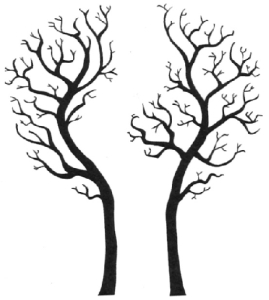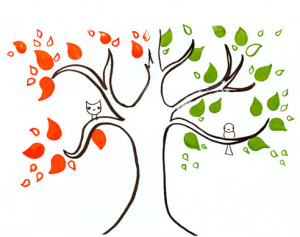Divorce can act as a rite of passage—an initiation into a new life.
By describing divorce in this way, I am not saying that it is a good or a bad event. But it does happen, and it happens frequently, and finding meaning and perspective during the process of divorce is crucial to healing and transformation.
Many of my clients have felt stuck in a marriage or committed, long-term relationship. On one end of the spectrum, partners may grow in different directions and struggle with feeling limited by the relationship. Other marriages face more damaging patterns. In these relationships, partners unconsciously hurt each other. Often these damaging patterns stem from early life relationships with parents and get replayed with the partner.
Couples therapy can clarify what’s been wrong and lead to renewed connection. Sometimes this renewed connection allows for a relationship that works well for both partners. Other times it becomes clear that the couple will separate.
If either or both partners have felt stuck and miserable for a long time, separating can release a great burst of energy that was bound up in the difficulties of maintaining an unhappy state together.
Whether splitting up brings this release or not, it still hurts. The life the couple dreamed of having together comes to a stop. Profound feelings of loss and grief can last for some time, and when one or both partners didn’t really want the divorce, these feelings can go on even longer and cause more suffering.
Some individuals will find themselves plunged into a depression during or after divorce. The question then becomes whether this dark time is barren of new life, or instead can become a kind of pregnant darkness that initiates the person into a fuller experience of his or her life. This is one area where therapy is especially helpful—to help midwife the client’s newly emerging life and provide support during a hard time.
After a divorce, my clients report a whole range of feelings, all of which are important to feel and work through in therapy. Feelings of grief, uncertainty, excitement, fear, loneliness, new potential, anxiety around finances, and many other feelings are part of the mix.
Questions of self-identity and the future often come up. Who am I apart from this other person and my relationship with them? Will I find another partner? Do I even want a relationship? Will I replay my own old patterns? How will I parent my kids (if there are children from the marriage)?
Divorce is a rite of passage that often comes during the midlife years from about age 35 through age 60. For so many, these years are a time of deep changes in many areas of life—relationships, parenting, health, and career. Clients find themselves turning inward, searching for answers, exploring complex feelings, redefining self-identity, and wondering about the future. This is an excellent time to find a therapist who can help you navigate these waters and embrace the new life that is waiting for you.

